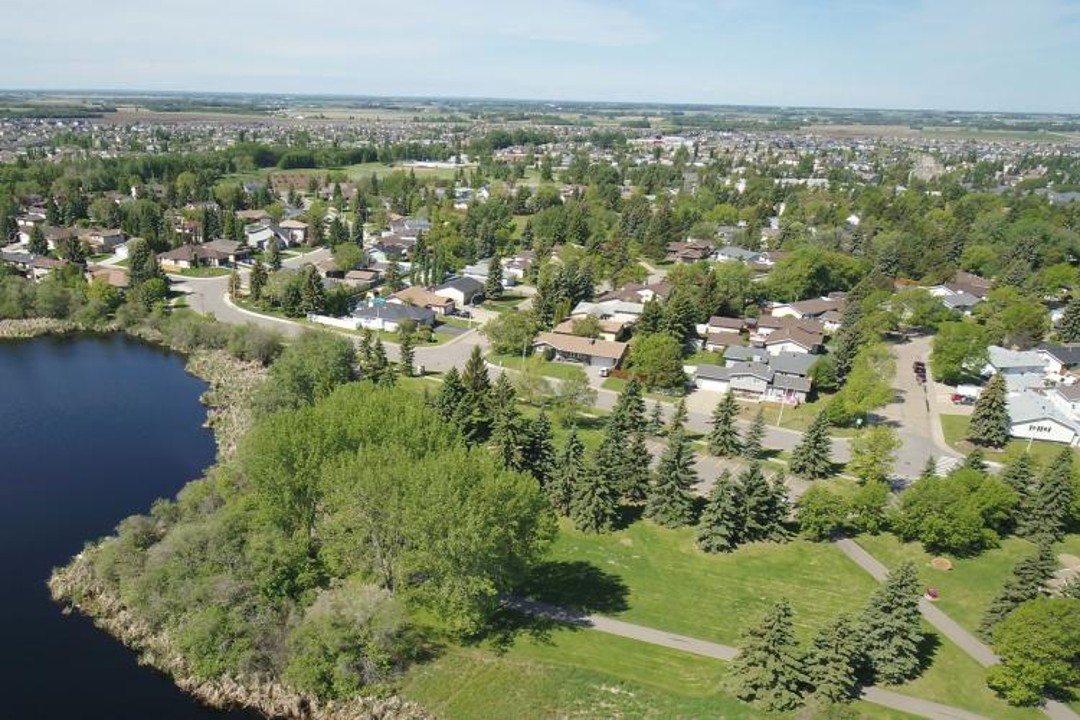While the Edmonton region's population booms, provincial housing starts reach record highs, and real estate sales see double-digit increases, numbers suggest a significant portion of the region's new housing is being built in Leduc.
Dennis Peck, manager of planning and development at the City of Leduc, told Taproot the city is on track to process three times as many applications as was budgeted for this year. "Those kind of numbers, it's quite amazing," he said.
As of mid-August, the City of Leduc has issued permits for 206 single-detached homes, 118 secondary suites, 33 duplexes, and 25 townhouses (the duplexes and townhouses are counted per door), for a total of 382 new homes.
A little over halfway through the year, Leduc has already approved more new homes than it did for most of the past five years. Leduc approved 352 new homes in 2023, 350 in 2022, 366 in 2021, 407 in 2020, and 345 in 2019.
Peck said the city has also approved services for lots for 265 single-detached homes, 64 duplexes, and 89 townhouses. He said developers will likely apply for permits and build houses on those lots in 2025.
"The lots that we've approved (for servicing), which is a much higher number, that's what you're seeing coming forward," Peck said. "So that's an expression of the industry's optimism for what they see is happening in the market."
The Edmonton Metropolitan Region Board, the organization that coordinates planning at a regional level, suggests the region's population could grow from its current 1.5 million people to 2.2 million by 2044. Recently, officials in Ardrossan, population 1,000 and located near Sherwood Park, noted plans are in place for its population to increase six-fold. Housing developer Andrew Usenik told CBC that existing core neighbourhoods inside Edmonton proper cannot handle the region's expected population growth.
Lindsey Butterfield, vice-president of government relations at BILD Edmonton Metro, said it's hard to compare growth rates in the municipalities across the Edmonton region. Still, Butterfield said, Leduc is certainly one of the fastest growing.
"A lot of growth is happening because of, I think, the administration in Leduc, because of their regulatory framework. It's just an easy place to do business — I think that's what it comes down to," Butterfield said. "We've heard from our builders, there's a lot of activity there, and it's just going like gangbusters."
Peck said the average turnaround for a development permit in Leduc is 2.8 calendar days. He said Leduc's administration meets regularly with industry representatives. "We try to work very closely with industry to get an understanding of what their needs are, and how we can help them," Peck said. "That doesn't mean we're just going to agree with everything they say, but you need to have very constructive conversations with industry to understand: What are they trying to do? What pressures do they face?"

Leduc has approved more new homes so far in 2024 than it did in most of the last five years. (City of Leduc)
Peck said staff also has private discussions with local developers twice a year that offer developers a chance to share plans more candidly, allowing the city to prepare for what's coming down the pipeline.
"It's not just about having a really nice piece of software you can issue permits through — you need to know your clients, you need to know your industry that you're working with, and you need to understand that what you're doing is actually does make a difference to them and can help that process go forward."
Shorter permit timelines can help make housing more affordable, Peck said, estimating it costs a developer between $250 and $300 a day to have an application sit before a municipality. The CHBA said a three-month delay, for example, results in an $8 to $10 increase per square foot in construction costs.
"So you figure if something's in there for three days is quite a bit different than 10 or 15 days," Peck said.
There are also major employment centres south of Edmonton that are attracting new residents to live close to their jobs, Butterfield said. The Edmonton International Airport and the growing industrial areas of Nisku and Leduc are combining to become one of the region's major employment centres.
"The value proposition of the Edmonton metro region is it's an affordable region in Canada where you can get a home, raise a family, have a good job, have a nice quality of life, and (people moving to the region) are finding that value proposition in Leduc," Butterfield said.
